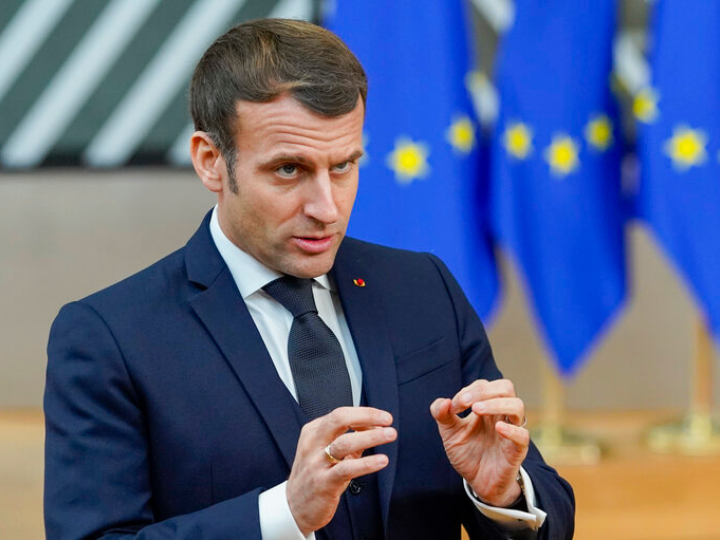by Laurent Geslin
PARIS – French President Emmanuel Macron and chiefs of staff from countries willing to send troops to Ukraine will attempt on Tuesday to figure out the details of a potential peacekeeping force – including how many troops might be needed.
Negotiations over a possible peace deal between Kyiv and Moscow remain beyond European influence, as a Ukrainian delegation is set to meet US envoys in Saudi Arabia today. Nevertheless, Macron appears determined to examine the operational aspects of a Western military deployment in Ukraine.
The political objectives of such an operation remain unclear, as do the financial and logistical resources involved. However, during a televised speech last week, the French president stated that any deployed troops “would not engage in frontline combat” but would instead be tasked with “ensuring full compliance with the peace agreement once signed.”
Beyond the United Kingdom – which has been in talks with Paris for several weeks – Sweden, Belgium, Denmark and even Australia have indicated their willingness to participate. According to UK officials, around 20 nations are interested in joining a "coalition of the willing" to support Ukraine.
In late January, Ukrainian President Volodymyr Zelenskyy declared that at least 200,000 troops would be necessary to provide Kyiv with serious security guarantees. Currently, 20% of Ukrainian territory remains under Russian occupation, with the frontline stretching over 1,000 kilometres.
“The Europeans are far from having 200,000 troops, and they remain deeply divided on the issue,” Philippe Migault, director of the European Centre for Strategic Analysis (CEAS), told Euractiv.
“The Poles and Italians do not want to deploy troops to Ukraine, nor do the Hungarians or Slovaks. As for the French army, it could only mobilise a few thousand soldiers, much like the British.”
Twenty-six EU countries—all except Hungary—reaffirmed their commitment to supporting Kyiv last week, stressing that any ceasefire must be accompanied by “robust and credible security guarantees for Ukraine that contribute to deterring future Russian aggression.”
The United States, meanwhile, has long made it clear that it has no intention of sending troops to Ukraine, as stated by Defence Secretary Pete Hegseth. President Donald Trump has also remained vague about whether Washington would underwrite a Europe-led troop deployment, which is likely to be stretched thin.
“It is difficult to envisage a force larger than 40,000 troops,” said Elie Tenenbaum, director of the Security Studies Centre at the French Institute of International Relations (Ifri).
“This could involve a few ground brigades positioned east of the Dnipro River to counter any potential Russian breakthrough. Alternatively, an air force contingent could be deployed to enforce a no-fly zone over major cities and key energy infrastructure.”
For now, however, Moscow remains firmly opposed to any Western military presence in Ukraine. During talks with the US in Riyadh last month, Russian Foreign Minister Sergey Lavrov reiterated that such a deployment was “clearly unacceptable.”
“Operationally, the Europeans are capable of deploying troops to Ukraine, though they would face significant constraints, particularly in intelligence and logistics,” Tenenbaum added.
“But if the Russians begin targeting European forces in Ukraine, the key question remains: how will Washington respond?”
For now, the US appears more focused on finalising its deal with Kyiv over rare minerals—which could be signed during the Saudi-hosted meeting—rather than on the existential dilemmas that European capitals face.
“We’re going over there with an expectation that we’re going to make substantial progress,” US Middle East envoy Steve Witkoff told Fox News. “All the signs are very, very positive.”
*first published in euractiv.com




 By: N. Peter Kramer
By: N. Peter Kramer
